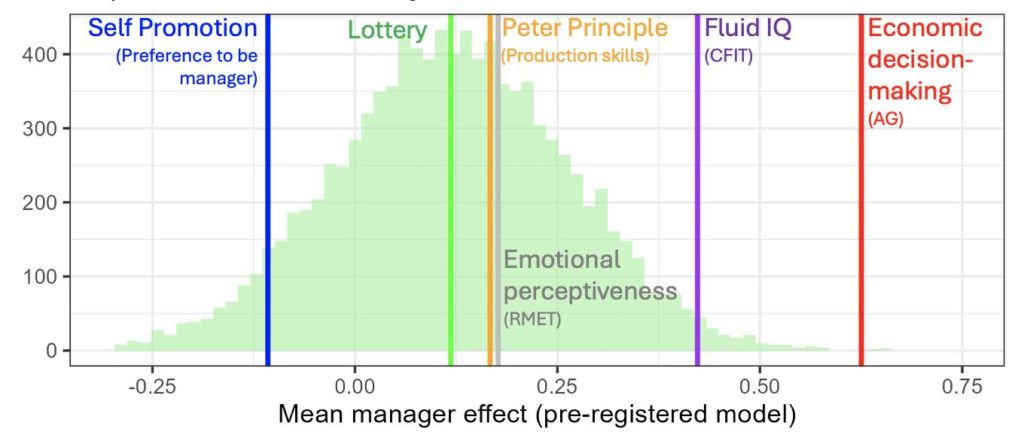A recent IZA discussion paper by Ben Weidmann, Joseph Vecci, Farah Said, David Deming, and Sonia Bhalotra explored the factors that make an effective manager. Using a controlled lab experiment with 555 participants, the researchers assigned managers to three-person teams solving numerical, spatial, and analytical problems in four rounds each. Managers were tasked with delegating responsibilities, monitoring progress, and motivating team members. By randomizing manager assignments, the study isolated the managers’ causal impact on team performance.
Key findings revealed that managerial effectiveness significantly influences team outcomes, with skilled managers doubling the productivity impact compared to individual workers. Effective managers optimized task allocation to align with team members’ strengths, reduced wasted effort, and maintained high motivation levels, resulting in superior team performance.
However, the study identified a critical flaw in self-selection: individuals eager to lead underperformed compared to those randomly appointed. Self-promoted managers tended to overestimate their abilities, particularly their social skills, which undermined their decision-making and team coordination. Conversely, managers with high cognitive and decision-making skills, such as fluid intelligence and economic decision-making proficiency, consistently drove better results.
Comparing methods of appointing managers

The implications for organizations are profound. The researchers recommend prioritizing skills over leadership ambition in managerial selection processes. Skill-based approaches, such as focusing on decision-making capabilities, could elevate team productivity by the equivalent of replacing average workers with top-tier performers. This underscores the importance of redefining leadership criteria to favor demonstrable abilities over confidence or self-promotion tendencies.
